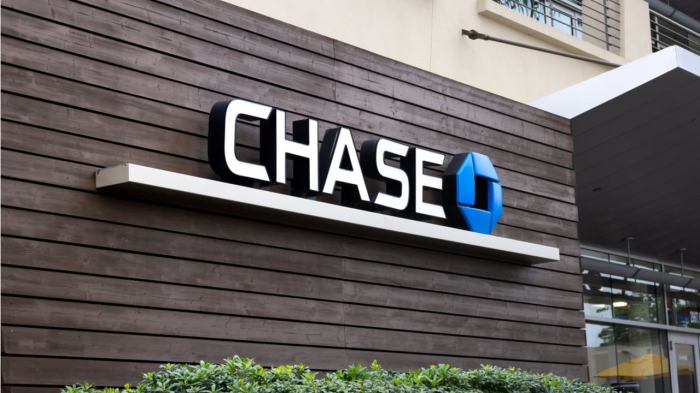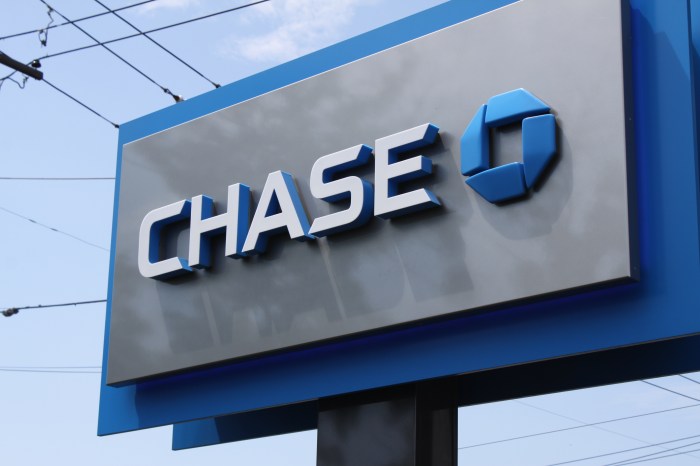
The pursuit of higher education often involves navigating the complex world of student financing. Private student loans, offered by institutions like Chase Bank, represent a significant avenue for funding your studies. Understanding the intricacies of these loans—interest rates, repayment options, eligibility requirements, and potential risks—is crucial for making informed financial decisions that set you up for success after graduation.
This guide provides a detailed exploration of Chase Bank private student loans, offering a clear and concise overview of the application process, loan terms, and management strategies. We’ll compare Chase’s offerings to federal student loans, helping you determine which financing path best aligns with your individual circumstances and financial goals. Our aim is to empower you with the knowledge necessary to confidently manage your student loan debt and pave the way for a brighter future.
Chase Bank Private Student Loan Interest Rates

Understanding the interest rates associated with Chase Bank private student loans is crucial for prospective borrowers. These rates directly impact the total cost of your education and the monthly payments you’ll make after graduation. Factors like creditworthiness and loan term significantly influence the final rate offered.
Chase Bank private student loan interest rates are not publicly listed as fixed numbers, as they are determined on a case-by-case basis. Instead, they are highly personalized and depend on a variety of factors, making it essential to obtain a personalized quote to understand your specific rate.
Chase Private Student Loan Interest Rate Factors
Several key factors influence the interest rate Chase Bank assigns to a private student loan. These factors allow the bank to assess the risk associated with lending to each individual borrower.
The most significant factor is the borrower’s credit history. A strong credit history, reflected in a higher credit score, typically leads to lower interest rates. Conversely, a weaker credit history results in higher rates, reflecting the increased risk for the lender. Other contributing factors include the loan term (shorter terms often mean higher rates, but lower overall interest paid), the loan amount (larger loans may come with slightly higher rates), and the co-signer’s creditworthiness (if applicable; a strong co-signer can help secure a better rate). Additionally, prevailing market interest rates play a role, affecting the overall pricing of loans.
Chase Private Student Loan Interest Rate Comparison
The following table provides a hypothetical range of interest rates and APRs based on different loan terms and credit profiles. Remember, these are illustrative examples and your actual rate may vary. It’s crucial to apply directly with Chase Bank to receive a personalized rate quote.
| Loan Term (Years) | Credit Score Range | Interest Rate Range (%) | APR Range (%) |
|---|---|---|---|
| 5 | 750-850 (Excellent) | 6.00 – 7.50 | 6.25 – 7.75 |
| 5 | 680-749 (Good) | 7.50 – 9.00 | 7.75 – 9.25 |
| 5 | 620-679 (Fair) | 9.00 – 10.50 | 9.25 – 10.75 |
| 10 | 750-850 (Excellent) | 7.00 – 8.50 | 7.25 – 8.75 |
| 10 | 680-749 (Good) | 8.50 – 10.00 | 8.75 – 10.25 |
| 10 | 620-679 (Fair) | 10.00 – 11.50 | 10.25 – 11.75 |
Obtaining a Personalized Interest Rate Quote
To receive a personalized interest rate quote from Chase Bank for a private student loan, you need to complete an application. This typically involves providing personal information, educational details, and financial information, including your credit history. Chase will then use this information to assess your creditworthiness and determine your interest rate. It’s important to note that initiating the application process does not obligate you to accept the loan if you’re not satisfied with the terms offered.
Chase Bank Private Student Loan Repayment Options

Choosing the right repayment plan for your Chase Bank private student loan is crucial for managing your finances effectively. The plan you select will significantly impact your monthly payments, the total amount of interest you pay over the life of the loan, and the overall length of your repayment period. Understanding the various options available is key to making an informed decision.
Chase Bank offers several repayment options for private student loans, each with its own set of advantages and disadvantages. The best option for you will depend on your individual financial situation and repayment goals.
Available Repayment Plans
Several repayment plans are typically available for Chase private student loans. While the exact options and their specific terms might vary slightly depending on your loan agreement, common plans include:
- Standard Repayment Plan: This is usually the default option, involving fixed monthly payments over a set period (often 10-15 years). It offers predictable budgeting but may result in higher total interest paid due to the longer repayment term.
- Extended Repayment Plan: This plan extends the repayment period, leading to lower monthly payments. However, this also means you’ll pay significantly more in interest over the life of the loan.
- Graduated Repayment Plan: This option starts with lower monthly payments that gradually increase over time. This can be helpful initially, but payments can become substantially higher later in the repayment period.
It’s important to carefully consider the trade-offs between monthly payment amounts, loan term length, and total interest paid when selecting a repayment plan. Contacting Chase directly to discuss your options and obtain personalized projections is highly recommended.
Sample Repayment Schedule: Standard Repayment Plan
The following table illustrates a sample repayment schedule for a $20,000 loan with a 7% annual interest rate using a standard 10-year repayment plan. This is a simplified example and does not include any potential fees or changes in interest rates. Actual repayment schedules will vary based on individual loan terms and interest rates.
| Payment Number | Beginning Balance | Payment Amount | Interest Paid | Principal Paid | Ending Balance |
|---|---|---|---|---|---|
| 1 | $20,000.00 | $241.34 | $116.67 | $124.67 | $19,875.33 |
| 2 | $19,875.33 | $241.34 | $116.16 | $125.18 | $19,750.15 |
| 3 | $19,750.15 | $241.34 | $115.64 | $125.70 | $19,624.45 |
| … | … | … | … | … | … |
| 120 | $241.36 | $241.34 | $1.42 | $240.00 | $0.00 |
Note: This table shows a simplified amortization schedule. Actual figures may vary slightly due to rounding.
Final Summary

Securing funding for your education is a pivotal step, and choosing the right student loan can significantly impact your financial well-being post-graduation. By carefully weighing the advantages and disadvantages of Chase Bank private student loans against federal options, and by diligently understanding the terms and conditions, you can make an informed decision that supports your academic aspirations without jeopardizing your long-term financial health. Remember to explore all available resources and seek professional financial advice when needed to navigate this important process effectively.
FAQ Guide
What is the minimum credit score required for a Chase Bank private student loan?
Chase doesn’t publicly state a minimum credit score, but a higher score generally leads to better interest rates and increased chances of approval. A co-signer can help if your credit is limited.
Can I refinance my Chase private student loan?
Yes, you may be able to refinance your Chase private student loan with another lender to potentially secure a lower interest rate or better repayment terms. Shop around and compare offers before refinancing.
What happens if I miss a payment on my Chase private student loan?
Missing payments will negatively impact your credit score and may result in late fees. Contact Chase immediately if you anticipate difficulty making a payment to explore options like forbearance or deferment.
Does Chase offer any loan forgiveness programs?
Chase Bank private student loans do not offer loan forgiveness programs in the same way as some federal loan programs. However, they may offer hardship programs in certain situations.
How long does it take to get approved for a Chase Bank private student loan?
The approval process varies, but generally takes a few days to a few weeks depending on the completeness of your application and the verification of your information.
